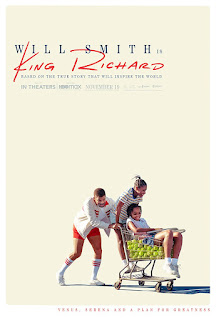Monthly Top Ten: February 2022
1. spacecamp tumblr (https://spacecamp1.tumblr.com/). My favorite art tumblr conveys a coherent sensibility all the more indelible for how difficult it is to pin down, a brazen mix of op art, psychedelic text/yearbook designs, catalogues of biodiversity from public domain primers on Archive.org, new agey oils, sci-fi covers in search of a book, and good ole-fashioned abstraction.
2. The Black Forager (Alexis Nikole Nelson) on TikTok (https://www.tiktok.com/@alexisnikole). In between instructive videos about leaching tannins from acorns and makings a jello dessert from seaweed, Nelson's reclamation project also touches on the political economy of food including how trespass laws in the 1800s prevented black people from foraging and how foraging gets you to think about who is responsible for getting food on your plate.
3. Half-sour pickles. The upside? They go down way easier than full sour. The downside? They go down way easier than full sour. A jar lasts about 48 hours chez mon frigo.
4. White noise machines. I crank the tone/bass in Soothe mode on my Homedics model to ameliorate the effects of living with tinnitus and loud-ass neighbors. The future is now.
5. Carrie Coon in The Gilded Age (created by Julian Fellowes) (HBO Max). Upstairs Downstairs/Downton Abbey Version 3.0, this time in 1880s New York City. At charity luncheons and hallowed concert halls, old money clings to its hegemony with tales of ancestors coming over on the Mayflower (the way so many hippies would claim Native American ancestry in the 1960s). Meanwhile, new money enters in the form of Mrs. Russell, wife of a railroad magnate with more money than them all but left out of the luncheons due to her millions deriving from industry. Fresh from her dynamite performance in The Nest (Sean Durkin, 2020), which could serve as a useful cross-reference for The Gilded Age, Carrie Coon plays Mrs. Russell in a flat, affectless voice that bespeaks Nowhere, i.e., a deracinated America with varying rates of mobility. Tonight's episode: old money Agnes van Rhijn (Christine Baranski at her snooty best) finally walks across the street at 61st and 5th Ave to confront Mrs. Russell!
6. Station Eleven (created by Patrick Somerville) (HBO Max). Based on Emily St. John Mandel's novel, this post-apocalyptic miniseries about the fragile earnestness of collective living features the number one characteristic of excellent serial television - a final episode that inevitably disappoints since we want the show to go on forever.
7. Match Your Mood (Jam Handy, 1968) (https://www.youtube.com/watch?v=y_d2-G9_INM). A six-and-a-half-minute promotional film for Westinghouse's new line of wallpaper-like decals for your refrigerator. Seen on Turner Classic Movies whose programmers know that suburban psychedelia will go down well with their demographic. Best decal: the Campbell's Soup one, duh.
8. Emily J. Lordi, Donny Hathaway Live (33 1/3). Deaf to Hathaway's music for years, I can now thank Lordi for another way in as she focuses on how his live album (and so much soul music besides) "is as much as about the synergy between the artists and the audience as it is about the music itself" (2).
9. Maria By Callas (Tom Volf, 2017). Sometimes I don't feel gay enough. Consider a recent viewing of this hypnotic documentary my due penance in this matter.
10. Yoko Ono: Onobox (Rykodisc, 1992). Happy 30th birthday to one of the precious few box sets I still own, not only for the music but for the story in Robert Palmer's liner notes when, at one of many laidback meetings at the Dakota, he has to confess that he's never heard Ono's music. John and Yoko joyfully run around trying to secure copies for Palmer. "John, I found a copy of Fly!"
Labels: monthly top ten







